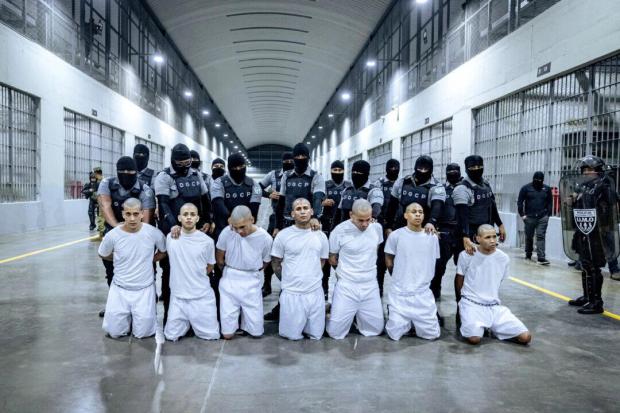
Breaking News
 Why Geological Maps Are the Best Investment You've Never Heard Of
Why Geological Maps Are the Best Investment You've Never Heard Of
 High School Student Discovers 1.5 Million Potential New Astronomical Objects...
High School Student Discovers 1.5 Million Potential New Astronomical Objects...
 UK Supreme Court says legal definition of 'woman' excludes trans women, in landmark ruling
UK Supreme Court says legal definition of 'woman' excludes trans women, in landmark ruling
 Major Problem in Physics Could Be Fixed if The Whole Universe Was Spinning
Major Problem in Physics Could Be Fixed if The Whole Universe Was Spinning
Top Tech News
 Kawasaki CORLEO Walks Like a Robot, Rides Like a Bike!
Kawasaki CORLEO Walks Like a Robot, Rides Like a Bike!
 World's Smallest Pacemaker is Made for Newborns, Activated by Light, and Requires No Surgery
World's Smallest Pacemaker is Made for Newborns, Activated by Light, and Requires No Surgery
 Barrel-rotor flying car prototype begins flight testing
Barrel-rotor flying car prototype begins flight testing
 Coin-sized nuclear 3V battery with 50-year lifespan enters mass production
Coin-sized nuclear 3V battery with 50-year lifespan enters mass production
 BREAKTHROUGH Testing Soon for Starship's Point-to-Point Flights: The Future of Transportation
BREAKTHROUGH Testing Soon for Starship's Point-to-Point Flights: The Future of Transportation
 Molten salt test loop to advance next-gen nuclear reactors
Molten salt test loop to advance next-gen nuclear reactors
 Quantum Teleportation Achieved Over Internet For The First Time
Quantum Teleportation Achieved Over Internet For The First Time
 Watch the Jetson Personal Air Vehicle take flight, then order your own
Watch the Jetson Personal Air Vehicle take flight, then order your own
 Microneedles extract harmful cells, deliver drugs into chronic wounds
Microneedles extract harmful cells, deliver drugs into chronic wounds
 SpaceX Gigabay Will Help Increase Starship Production to Goal of 365 Ships Per Year
SpaceX Gigabay Will Help Increase Starship Production to Goal of 365 Ships Per Year
Supreme Court Sides With Trump Over Venezuelan Deportations, But Requires Due Process...

The Supreme Court on Monday sided with the Trump administration's request to halt lower court judge James Boasberg's order stopping Trump from deporting suspected members of Venezuelan gang Tren de Aragua under the Alien Enemies Act (AEA).
"We grant the application and vacate the [temporary restraining orders]," the court said in its unsigned 5-4 opinion.
And while this may be a win for Trump, its impact was muted by the fact that detainees must be given due process before they are deported.
"AEA detainees must receive notice after the date of this order that they are subject to removal under the Act. The notice must be afforded within a reasonable time and in such a manner as will allow them to actually seek habeas relief in the proper venue before such removal occurs," the court wrote in its majority opinion.
Predictably penning the dissent was Justice Sonia Sotomayor - who was joined by Justices Elena Kagan and Ketanji Brown Jackson, while Justice Amy Coney Barrett partially joined Sotomayor's dissent.
The decision came after the Trump administration and plaintiffs in the initial case filed competing briefs to the justices.
According to Acting US Solicitor General Sarah Harris, the "case presents fundamental questions about who decides how to conduct sensitive national-security-related operations in this country—the President, through Article II, or the Judiciary, through [temporary restraining orders]."
The Trump administration launched their appeal to the Supreme Court after the US Court of Appeals for the District of Columbia Circuit sided with Boasberg.
The plaintiffs, which included a group of Venezuelan nationals, told the court on April 1 that the lower court's block on deportations "ensures that, based on an unprecedented peacetime invocation of the AEA, additional individuals are not hurried off to a brutal foreign prison, potentially for the rest of their lives, without judicial process."
The Supreme Court on Monday sided with the Trump administration's request to halt lower court judge James Boasberg's order stopping Trump from deporting suspected members of Venezuelan gang Tren de Aragua under the Alien Enemies Act (AEA).
"We grant the application and vacate the [temporary restraining orders]," the court said in its unsigned 5-4 opinion.
And while this may be a win for Trump, its impact was muted by the fact that detainees must be given due process before they are deported.
"AEA detainees must receive notice after the date of this order that they are subject to removal under the Act. The notice must be afforded within a reasonable time and in such a manner as will allow them to actually seek habeas relief in the proper venue before such removal occurs," the court wrote in its majority opinion.
Predictably penning the dissent was Justice Sonia Sotomayor - who was joined by Justices Elena Kagan and Ketanji Brown Jackson, while Justice Amy Coney Barrett partially joined Sotomayor's dissent.



